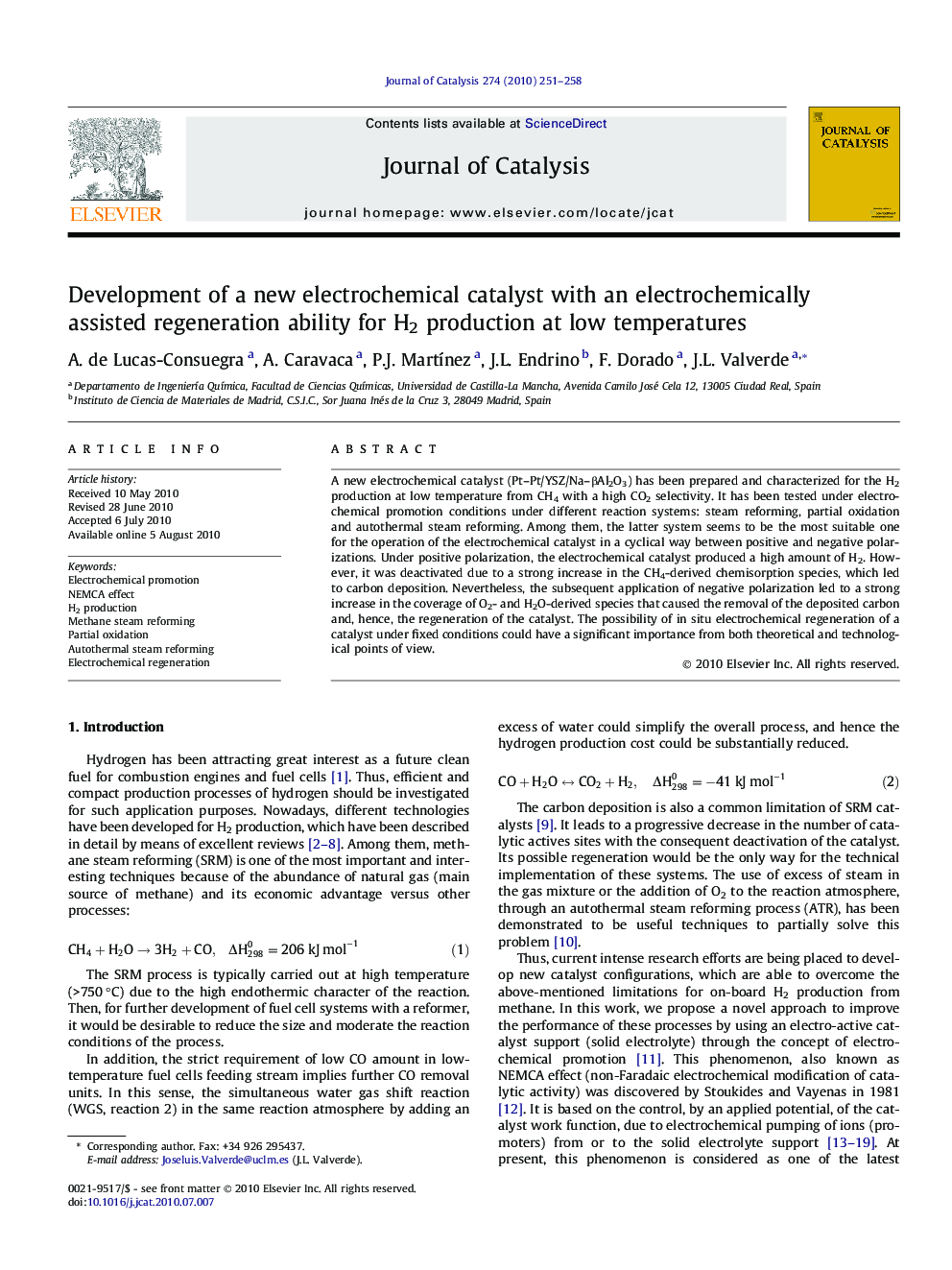| Article ID | Journal | Published Year | Pages | File Type |
|---|---|---|---|---|
| 61883 | Journal of Catalysis | 2010 | 8 Pages |
A new electrochemical catalyst (Pt–Pt/YSZ/Na–βAl2O3) has been prepared and characterized for the H2 production at low temperature from CH4 with a high CO2 selectivity. It has been tested under electrochemical promotion conditions under different reaction systems: steam reforming, partial oxidation and autothermal steam reforming. Among them, the latter system seems to be the most suitable one for the operation of the electrochemical catalyst in a cyclical way between positive and negative polarizations. Under positive polarization, the electrochemical catalyst produced a high amount of H2. However, it was deactivated due to a strong increase in the CH4-derived chemisorption species, which led to carbon deposition. Nevertheless, the subsequent application of negative polarization led to a strong increase in the coverage of O2- and H2O-derived species that caused the removal of the deposited carbon and, hence, the regeneration of the catalyst. The possibility of in situ electrochemical regeneration of a catalyst under fixed conditions could have a significant importance from both theoretical and technological points of view.
Graphical abstractA new electrochemical catalyst has been developed for low-temperature H2 production from methane, through reforming processes. The application of different potentials allows working in a cyclical way by in situ regenerating the catalyst from carbon deposition under fixed reaction conditions.Figure optionsDownload full-size imageDownload high-quality image (83 K)Download as PowerPoint slide
